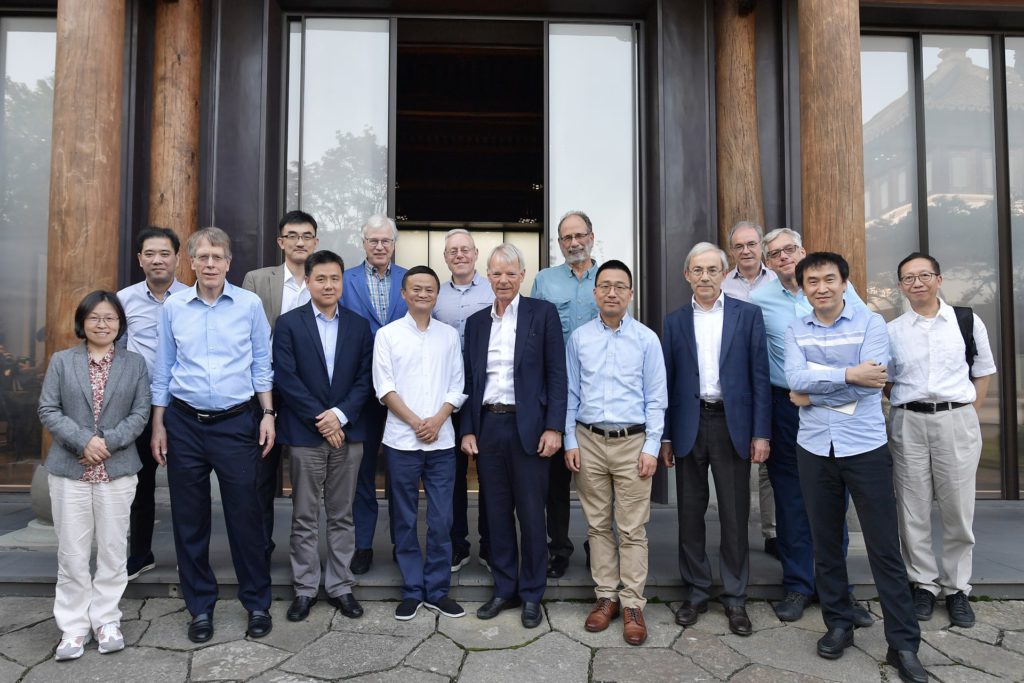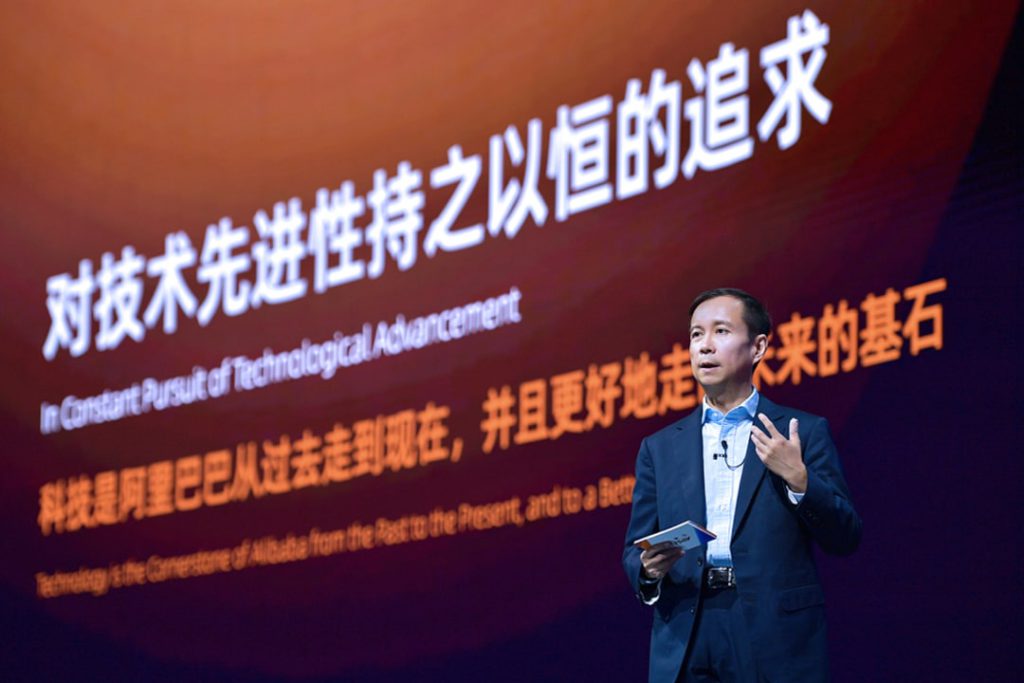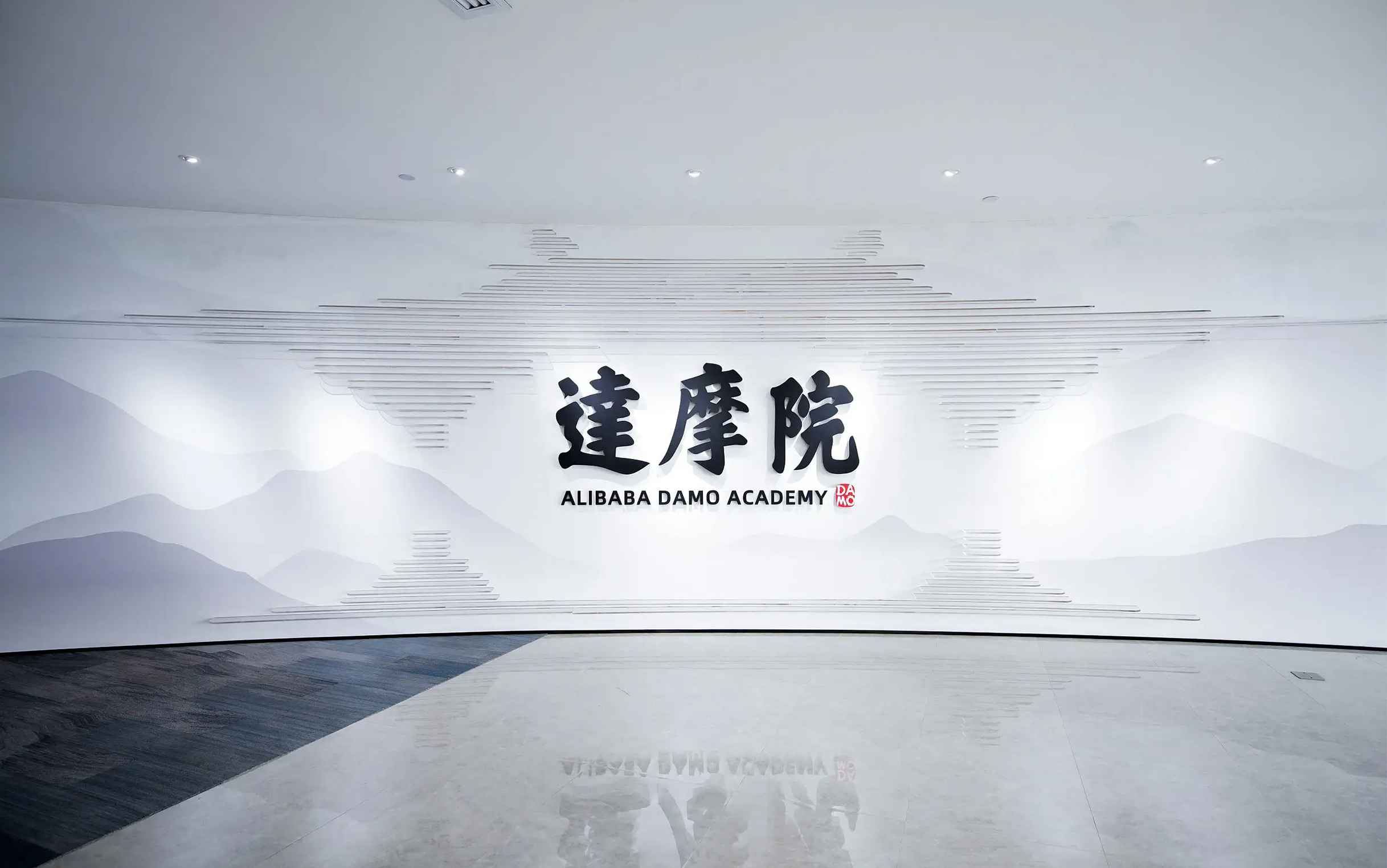Recently, Alibaba Group has been a bit busy.
First, there was a change in leadership. At the same time, its various subsidiaries have been undergoing adjustments according to the “1+6+N” strategy. Meanwhile, preparations for Singles’ Day took place amid rumors of personnel shifts at Taobao and Tmall Group.
Safe to say, change has been the only constant for Alibaba.
Adding to the complexity, attention has recently turned to Luohan Academy, a research institution of Alibaba that is said to be on par with Damo Academy. Rumors had been spreading of Luohan Academy’s closure, which were subsequently refuted by Chen Long, president of the institution. However, with restructuring still underway in accordance with the “1+6+N” strategy, Chen said that changes have been made to Luohan Academy’s organizational structure, team composition, and focus areas.
Established on June 26, 2018, Luohan Academy, like Damo Academy, is an open research institution concentrating on large-scale model development. While Damo Academy explores cutting-edge technology across various fields, Luohan Academy’s mandate is to address issues arising from these technological advancements.
Wu Yongming (also known as Eddie Wu), the new CEO of Alibaba, is a figure who emphasizes artificial intelligence-driven strategies and prioritizes users. Under his leadership, Damo Academy has remained secure as the rear support for Alibaba’s AI exploration. However, Luohan Academy, which is deemed “compatible” with Damo Academy, is seemingly undergoing a turbulent phase, contrary to Jack Ma’s vision of its enduring existence.

Shifting focus to tangible outcomes?
Data governance, privacy protection, the new economy, sustainable transformation, economic theories of intelligent technology, future finance, and more—Luohan Academy refers to these publicly displayed research projects on its official website as an array of “complex but far-reaching issues,” highlighting its nature as a non-governmental, non-profit organization (NGO).
Although Alibaba’s “1+6+N” strategy drew widespread attention this year, the focus of the industry and the capital market has largely been on its commercial entities. Luohan Academy, as a non-profit entity, managed to steer clear of public scrutiny. Prior to the recent turmoil, some employees of Alibaba had even claimed that they were unaware of Luohan Academy’s existence.
This context may clarify the reasons for Luohan Academy’s ongoing adjustments. Being an NGO, its divergence from the strategic direction of Alibaba’s other subsidiaries, especially those with plans to go public, could be a significant factor. This misalignment, despite Alibaba’s assurance that Luohan Academy’s focus will persist, may necessitate a shift toward prioritizing tangible outcomes.
Another perspective worth reviewing is that Damo Academy has at times been regarded as a “training ground” which Jack Ma also hoped would exist for 300 years. According to various reports, when Damo Academy was founded, it received funding support from Ant Financial—just like Luohan Academy, which was established a year later. At that time, Ant Financial committed to investing RMB 100 billion (USD 14.1 billion) in Damo Academy within three years. On the other hand, the funding support for Luohan Academy was based on the USD 14 billion raised by Ant Group in 2018.
When Ant Group’s IPO encountered setbacks in 2020, Jack Ma, who initiated the Luohan Academy initiative, was forced to step back. More importantly, the USD 34.5 billion financing incident dealt a significant blow to the financial health of Ant Group and even Alibaba.
Subsequently, Ant Group embarked on a three-year rectification which led to its separation from Alibaba as early as 2020. Three years later, Ant Group, after restructuring, is seemingly showing ambitions for an IPO again. However, this time round, providing funding support to NGOs like Luohan Academy may do “more harm than good.” Moreover, Ant Group has technically fulfilled its commitment of financial support to Luohan Academy over the past three years.
From this perspective, Luohan Academy’s current adjustment is likely aimed at further disentanglement from Ant Group. Concurrently, this move would allow it to reconnect with and tap on the broader support of Alibaba while retaining its NGO nature. Chen appeared to confirm this when responding to rumors, stating that Luohan Academy’s research will continue to be carried out “in the form of an NGO.”
The road ahead for Luohan Academy
USD 100 billion was the amount of capital provided to start Damo Academy, and Jack Ma required that Damo Academy must be responsible for its own profits and losses thereafter. Luohan Academy’s circumstances are quite different. Not only can its USD 14 billion not make it profitable, but every one of its academicians need funds to carry out research.
Moreover, considering the recent trend of large enterprises continuously reducing costs and increasing efficiency in the past two years, institutions like Luohan Academy that are considerably distant from business operations may be the most reasonable to shut down first. The last recorded activity on Luohan Academy’s official website was on December 15, 2021, and its latest report was published on June 10, 2022. These signs indicate that Luohan Academy’s cutting-edge research may have encountered difficulties after Ant Group terminated its “blood transfusion.”
Amidst the profound social issues discussed during Luohan Academy’s annual digital conference, it was not difficult to notice that Luohan Academy, which does not generate profits, has already focused its attention on Alibaba’s own research work, keeping in mind the evolution of Alibaba’s 102-year vision under then-CEO Daniel Zhang to emphasize environmental, social, and governance (ESG).

Chen has publicly stated that the definition of a good company has transitioned from “making a lot of money” to “creating a lot of value for society,” with the bridge being ESG. Chen is also the chairman of Alibaba Group’s sustainable development management committee and the main person in charge of its ESG report.
ESG has become an important topic for organizational development in recent years, not only gradually becoming an important indicator for evaluating companies but also possibly becoming a “second financial report” for companies.
Although ESG aligns broadly with Luohan Academy’s research topics, the institution’s focus on Alibaba’s own research work, from a social perspective, can lead to suspicion of “using public resources for private purposes.”
According to insiders in the ESG industry, the research and reporting of ESG results for a leading company typically requires quantifying data and conducting in-depth visits to examine internal governance at the organizational and employee levels. This involves significant resources, which cannot be handed over to scholars but requires hiring relevant personnel to advance.
An Alibaba insider said that Luohan Academy’s recruitment of external employees is similar in nature to Huawei’s organizational development. The responsibilities of these positions primarily involve solving problems related to the organization’s internal and overall development. This seemingly confirms that Luohan Academy’s “mainline tasks” in the past two years have now fallen on Alibaba itself.
Furthermore, with ESG now gaining momentum, Luohan Academy’s scholars inevitably need funding to advance their research. “Render unto Caesar the things that are Caesar’s, and unto God the things that are God’s.” As this saying might imply, separating Luohan Academy from Alibaba can be a logical adjustment.
Chen also mentioned in his response that, post-adjustment, Luohan Academy will retain functions such as ESG research and operations within the holding group.
However, it’s worth noting that Alibaba has not achieved good ESG results in previous ratings. Based on Morgan Stanley Capital International (MSCI) standards, Alibaba’s overall rating was BBB, indicating that it still has a long way to go on “the road to improvement.”
As for the “essence” of Luohan Academy, it can operate independently and start anew. Perhaps not long after, it will embark on new projects, but this time, the scope will likely not be limited to Alibaba.
Pressure shifts to Damo Academy
Ultimately, Alibaba’s denial has settled the storm around Luohan Academy despite lingering past issues.
On the contrary, the situation for Damo Academy, while initially optimistic, now faces a gloomy forecast. Previously regarded as the rear support for Alibaba in the AI era, Ma’s decision for it to be a self-financing entity may have unintentionally turned into shackles that will hinder its future progress.
The origin of this self-financing model stems from Ma’s concerns about “research without results.” Although this model may synergize better with business, it may also directly affect how R&D is conducted. The internal business of Damo Academy is presumably much busier compared to Luohan Academy, amidst higher pressure to not only deliver research results but also generate income.
In the industry, rumors suggest that Damo Academy’s internal departments often take on technically challenging projects from external parties to keep the organization running. This can seemingly be confirmed by Damo Academy’s forays in the hardware research space. For example, Damo Academy undertook the task of developing the Hanguang 800 chip despite lacking the capability to replace Nvidia’s A100 and H800 in large model training.
Alibaba’s “1+6+N” strategy holds promise for its subsidiary businesses, but it does not guarantee a smooth transition into the AI era. After the storm that shook Luohan Academy, Alibaba needs to ensure that Damo Academy can show more to the outside world. After all, among the two “training grounds” born from Ma’s vision, only Luohan Academy is qualified to stay low-key.
This article was adapted based on a feature originally written by and published on Photon Planet (WeChat ID: TMTweb). KrASIA is authorized to translate, adapt, and publish its contents.

